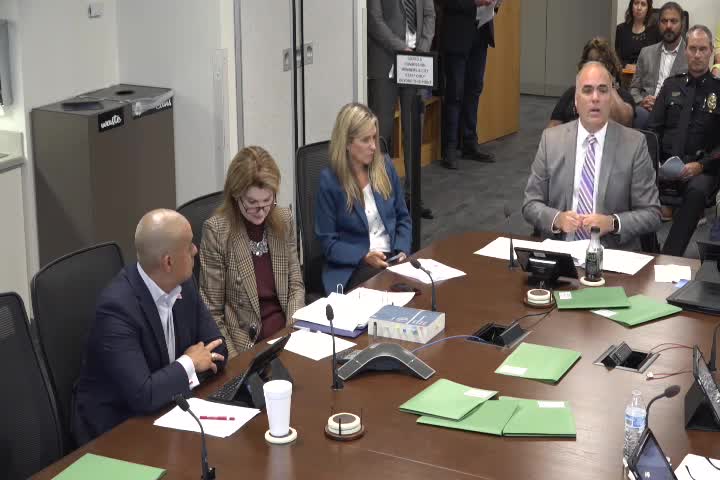City Council Pushes for Major Transit Cost Reductions
July 16, 2024 | Carrollton, Denton County, Texas

This article was created by AI summarizing key points discussed. AI makes mistakes, so for full details and context, please refer to the video of the full meeting. Please report any errors so we can fix them. Report an error »

In a recent government meeting, officials discussed a significant resolution aimed at enhancing the efficiency and sustainability of the Dallas Area Rapid Transit (DART) system. The proposal, which is part of the broader Transit 2.0 initiative, seeks to implement cost-cutting measures that could potentially reduce subsidies by approximately 25%, translating to annual savings of around $12 to $13 million.
The resolution emphasizes the need for a collaborative approach among member cities to ensure equitable cost allocation and to balance sales tax contributions with service costs. Several cities have already begun recommending strategies to DART, including capping or reducing their financial contributions.
Key to this initiative is a study commissioned by DART from Ernst and Young, which aims to provide insights into cost distribution among member cities. The discussions also highlighted the importance of engaging with other transit agencies and exploring legislative support to foster a more integrated transportation network.
Officials expressed optimism that these efforts would not only streamline operations but also attract non-member cities to join the DART system, thereby distributing fixed costs more broadly. The resolution is seen as a proactive step towards creating a more sustainable transit operation, with expectations for further developments to be presented to the Regional Transportation Council in time for the upcoming legislative session.
Overall, the meeting underscored a collective commitment to improving transit services while ensuring fiscal responsibility among member cities.
The resolution emphasizes the need for a collaborative approach among member cities to ensure equitable cost allocation and to balance sales tax contributions with service costs. Several cities have already begun recommending strategies to DART, including capping or reducing their financial contributions.
Key to this initiative is a study commissioned by DART from Ernst and Young, which aims to provide insights into cost distribution among member cities. The discussions also highlighted the importance of engaging with other transit agencies and exploring legislative support to foster a more integrated transportation network.
Officials expressed optimism that these efforts would not only streamline operations but also attract non-member cities to join the DART system, thereby distributing fixed costs more broadly. The resolution is seen as a proactive step towards creating a more sustainable transit operation, with expectations for further developments to be presented to the Regional Transportation Council in time for the upcoming legislative session.
Overall, the meeting underscored a collective commitment to improving transit services while ensuring fiscal responsibility among member cities.
View full meeting
This article is based on a recent meeting—watch the full video and explore the complete transcript for deeper insights into the discussion.
View full meeting
